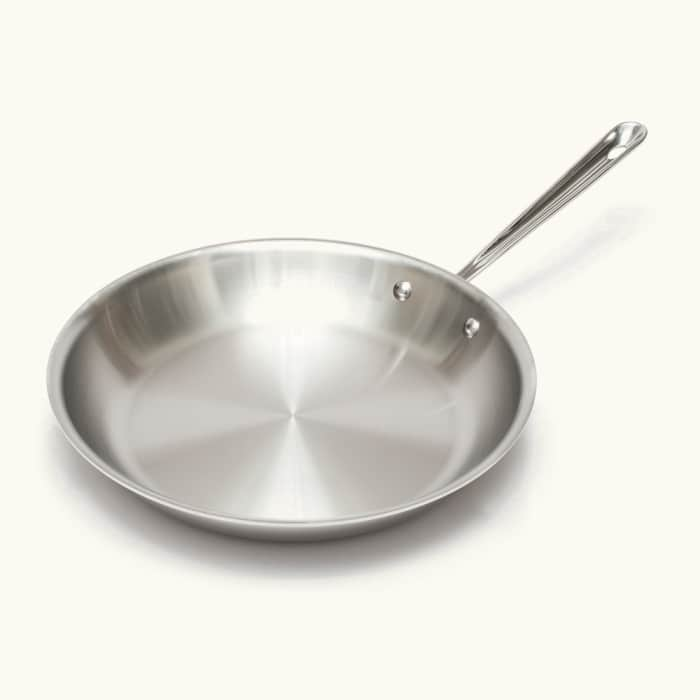Is it safe to use aluminum foil for cooking?

Aluminum foil is a common household product often used in cooking, as some argue that using aluminum foil in cooking can cause aluminum to leak into your food and endanger your health, while others consider it completely safe to use.
This article explores the risks associated with the use of aluminum foil and determines whether or not it is acceptable for everyday use.
What is aluminum foil?
Aluminum foil, or tin foil, is a thin, shiny sheet of aluminum metal. Manufactured by rolling large sheets of aluminum with a thickness of less than 0.2 mm, it is used industrially for a variety of purposes, including packaging, insulation, and transportation. It is also widely available in grocery stores for home use, and at home, aluminum foil is used to store food, to cover bread surfaces and to wrap foods, such as meat, to prevent them from losing moisture during cooking.
People may also use aluminum foil to wrap and protect more delicate foods, such as vegetables, when cooking them.Finally, it can be used in aluminum plates for food preservation and for washing sinks or grill grates to remove stubborn stains and residue.
Bottom Line: Aluminum foil is a thin, versatile metal that's commonly used in the home, and especially in cooking.
There are small amounts of aluminum in food :
Aluminum is one of the most abundant minerals on earth, and in its natural state it binds to other elements such as phosphates and sulfates in soil, rocks and clay, and is also present in small amounts in air, water and food.
In fact, aluminum is naturally present in most foods, including fruits, vegetables, meats, fish, grains, and dairy products, and some foods such as tea leaves, mushrooms, spinach, and radishes can absorb and store aluminum more than other foods, in addition to Some of the aluminum comes from eating processed food additives, such as preservatives, colorants, anti-caking materials, and thickeners. Commercially produced foods contain food additives and more aluminum compared to home-cooked foods.
The actual amount of aluminum in the food you eat will largely depend on the following factors:
● Absorption: How food easily absorbs and stores aluminum.
● Soil: The aluminum content of the soil in which the foods were grown.
● Packaging: If food is wrapped and stored in aluminum containers.
● Additives: If certain materials are added during food preparation.
Aluminum is also consumed through medicines that contain a high content of aluminum, such as antacids.
Regardless, the aluminum content in food and medicine is not a problem, as very little is absorbed from the aluminum that is actually ingested. The remainder is excreted with feces. Moreover, in healthy people, absorbed aluminum is excreted with urine. In general, the amount of aluminum you eat daily is considered safe.
Bottom Line: Aluminum is consumed through food, water, and medicine. However, most of the aluminum you eat is eliminated in feces and urine and is not considered harmful.
Cooking with aluminum foil may increase the aluminum content of foods:
Most of the aluminum you eat comes from food, and studies show that aluminum foil and cooking utensils can add aluminum to your food which means that cooking with aluminum foil may increase the aluminum content in a food.
The amount of aluminum that leaks into your food when cooking with aluminum foil is affected by a number of things, such as:
● Temperature: High temperature cooking.
● Food type: Cooking with acidic foods, such as tomatoes, cabbage, and rhubarb.
● Some ingredients: Use of salts and spices in cooking.
However, the amount that permeates your food when cooking can vary.
For example, one study found that cooking red meat in aluminum foil can increase its aluminum content by between 89% and 378%.
Studies like these have caused concern that regular use of aluminum foil in cooking will harm your health.However, there is currently no strong evidence linking the use of aluminum foil with an increased risk of disease.
Summary: Cooking with aluminum foil can increase the amount of aluminum in food. However, the amounts are very small and researchers consider them safe.
Possible health risks of too much aluminum :
Daily exposure to aluminum that you are exposed to through food and cooking is considered safe because healthy people can excrete a small amount of aluminum that is efficiently absorbed by the body, and recently dietary aluminum has been suggested as a potential factor in the development of Alzheimer's disease.
Alzheimer's disease is a neurological condition resulting from the loss of brain cells, as people suffer from memory loss and a decrease in brain function, and to this day the cause of Alzheimer's disease is still not fully known, but it is believed that it is caused by a group of genetic and environmental factors that can damage the brain over time, high levels of aluminum were found in the brains of Alzheimer's patients, and due to the lack of a link between people who ingest a large amount of aluminum found in some medications such as antacids, it remains unclear whether dietary aluminum is really the cause of the disease.
Exposure to very high levels of dietary aluminum may contribute to the development of brain diseases such as Alzheimer's disease, but the delicate role that aluminum plays in the development of Alzheimer's disease, If any, is still undetermined.
Several studies have indicated that dietary aluminum could be an environmental risk factor for inflammatory bowel disease (IBD) in addition to its potential role in brain disease, although some test tube and animal studies have yet to find a definitive link between aluminum intake and inflammatory intestine disease.
Summary: It has been hypothesized that high levels of dietary aluminum may contribute to Alzheimer's disease and inflammatory bowel disease, but its role is still unclear.
How to reduce your exposure to aluminum when cooking?
It's impossible to completely remove aluminum from your diet, but you can work to reduce it to a minimum.
The World Health Organization (WHO) and the Food and Drug Administration (FDA) have agreed that levels below 2 mg per 2.2 pounds (1 kg) of body weight per week are unlikely to cause health problems.
The European Food Safety Authority uses a more stringent estimate of 1 mg per 2.2 pounds (1 kg) of body weight per week, however, most people are assumed to consume much less than this percentage, and here are some steps you can take to reduce unnecessary exposure to aluminum when cooking. :
● Avoid high-heat cooking: Cook your food at lower temperatures when possible.
● Use less aluminum foil : Limit your use of aluminum foil in your cooking, especially if you cook with acidic foods, such as tomatoes or lemons.
● Use non-aluminum utensils : Use non-aluminum utensils to cook your food, such as bowls, glassware, or ceramics.
● Avoid mixing aluminum foil and acidic foods : Avoid exposing aluminum foil or cooking utensils to acidic foods, such as tomato sauce.
Additionally, since commercially manufactured foods can be packaged in aluminum or contain food additives that contain them, their aluminum levels may be higher than their home counterparts, so eating most home-cooked foods and reducing your intake of commercially processed foods may help reduce your aluminum intake.
Summary: Aluminum exposure can be reduced by reducing your intake of processed foods and reducing your use of aluminum foil and aluminum cookware.
Should you stop using aluminum foil?
Aluminum foil is not dangerous, but it can increase the aluminum content in your diet in a small amount. If you are concerned about the amount of aluminum in your diet, you should stop cooking with aluminum foil. However, the amount of aluminum that goes into your diet is likely to They are minimal, and thus you are exposed to a safe and low amount of aluminum, only then removing these chips from your kitchen is not necessary.
Limited Time Offer
Become a Successful NDIS Provider
$689 $349
Use code EARLY349 at checkout
News Feed







